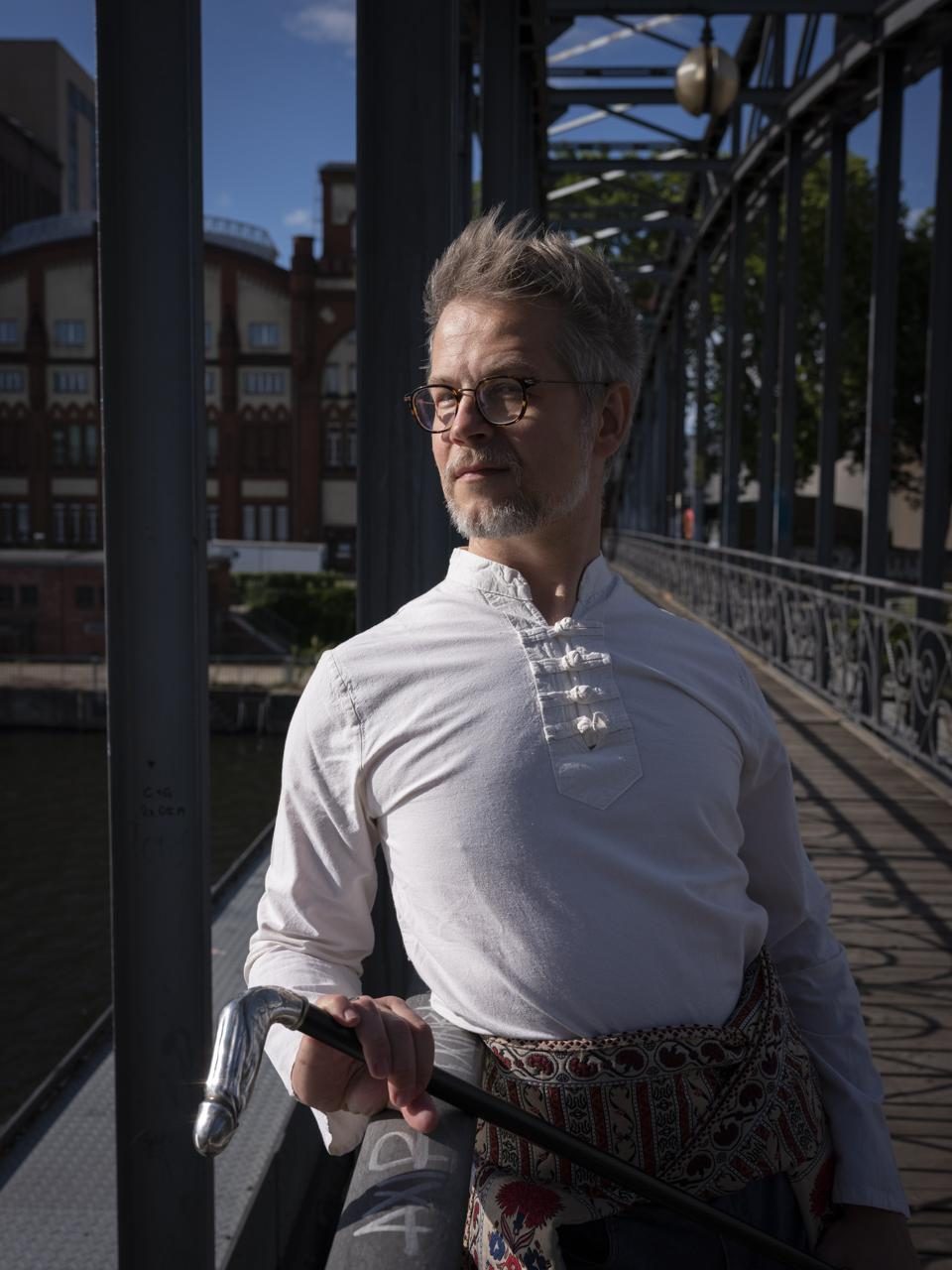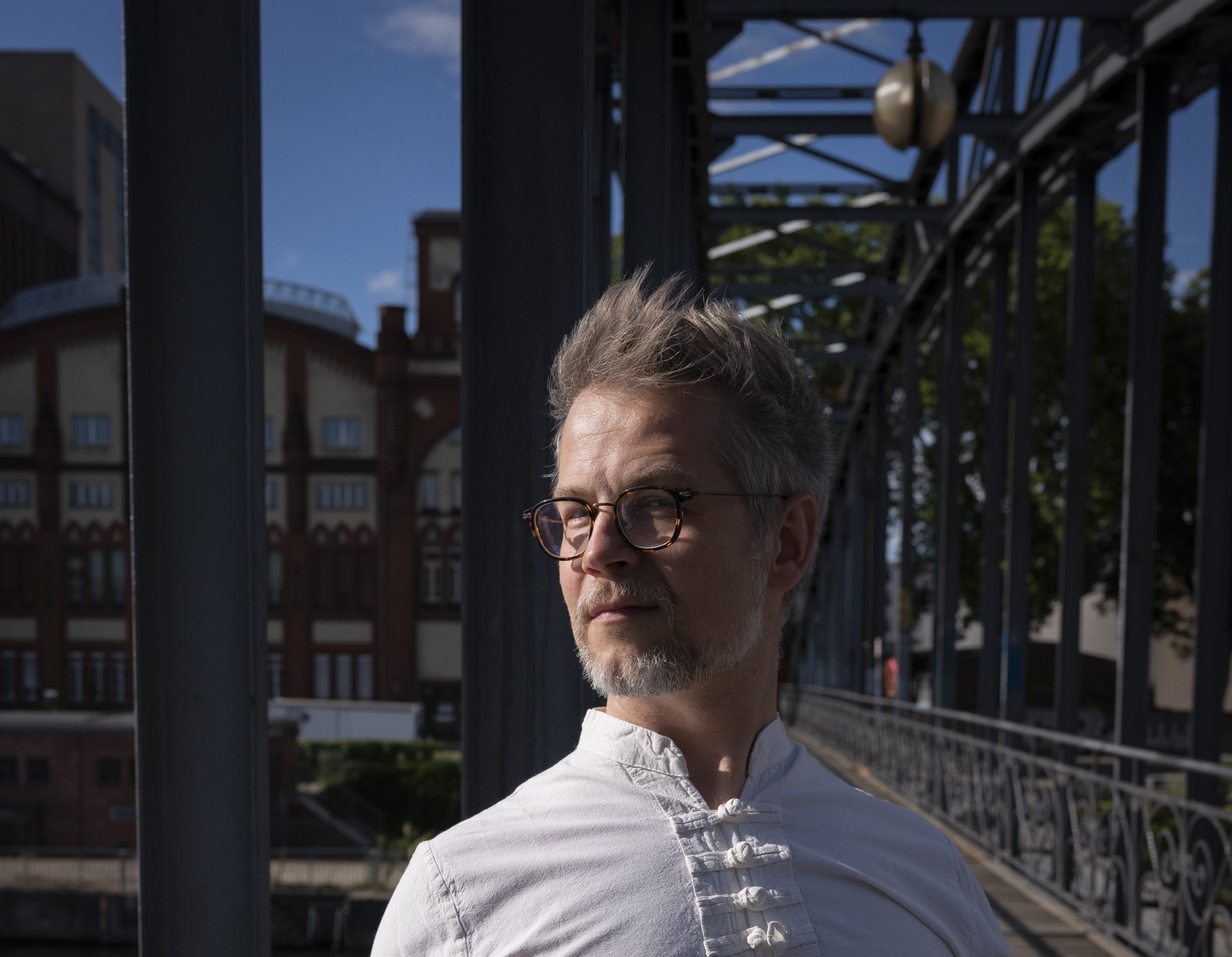Poland, Literature, 2020
Jacek
Dehnel

He is a man of many talents: a painter, a translator, a literary critic, a journalist, a TV host, a cultural organizer, and more. But Jacek Dehnel, born in Danzig in 1980, is one thing above all: a very successful writer. He carefully cultivates his image as a jaded intellectual, an out gay man, and a style-conscious aesthete. One can’t help but think of Oscar Wilde or Tom Wolfe, though it’s undeniable that his predilection for bow ties and walking sticks is in perfect harmony with his delicate features and perfect manners.
Dehnel has little tolerance not only for slipshod attire, but also, it seems, for coincidence in his literary career—to date he has published multiple novels, short story collections, and poetry. He owes his determination to add an element of originality and grandeur to his life—a mixture of intellectual discipline and aesthetic vigilance—in great part to his family, in particular to his grandmother, who honed his intellect over many years, and his mother, a painter.
These two women also inspired his best-known works. First, his autofiction Lala (2006, English 2018). His grandmother is the central figure of this novel: an old woman, dazzlingly beautiful in her youth, who is intelligent, brave, and adventurous. Thanks to these inner and outer qualities, she lived through a wide variety of experiences that she passionately recounts in her old age. Her memories are woven together in an expansive, colorful tapestry whose elaborate design reflects the complexity of the fate of Poland in the twentieth century. Second, his novel Saturn (2011, English 2014), which also has roots in the fact that Dehnel originally planned to follow in his mother’s footsteps and become a painter. Saturn recounts some of the most important episodes in the life of Francisco Jose de Goya. Of Goya’s seven children, only one son survived: Javier, of whom no more is known other than that he also became a painter, and that the relationship between father and son was not easy. This is the starting point for Dehnel’s novel, which alternates between the two men’s point of view. In this way Goya is revealed as an egoistic, narcissistic, domestic tyrant; a glutton and a boor who piles feigned achievements on top of real ones, and revels in making his son look like a complete loser.
Among Jacek Dehnel’s many talents is his ability to connect historical motifs with the reality of life in Poland today. He most recently demonstrated this in his satirical novella But with Our Dead Ones (2019), in which the ghosts of the past return as zombies to teach Polish values to Europeans, causing only chaos in the end. The title references an essay by literary scholar Maria Janion, “Yes to Europe, but together with our dead.” Whoever is aware of Dehnel’s determined engagement with public life, his blistering castigation of aggressive political rhetoric, and his advocacy for LGBT rights understands why he is considered one of the most remarkable figures in Polish literary circles today.
Text: Marta Kijowska
Translation: Laura Radosh
Lala
W.A.B., 2006
Lala
Rowohlt, 2008 (Ü: Renate Schmidgall)
Lala
Oneworld Publications, 2018 (Transl.: Antonia Lloyd-Jones)
Saturn. Czarne obrazy z życia mężczyzn z rodziny Goya
W.A.B., 2011
Saturn. Schwarze Bilder der Familie Goya
Hanser, 2013 (Ü: Renate Schmidgall)
Saturn
Dedalus Books, 2013 (Transl.: Antonia Lloyd-Jones)
Mrs Mohr Goes Missing
Bloomsbury, 2019 (co-written with Piotr Tarczyński and translated by Antonia Lloyd Jones)


